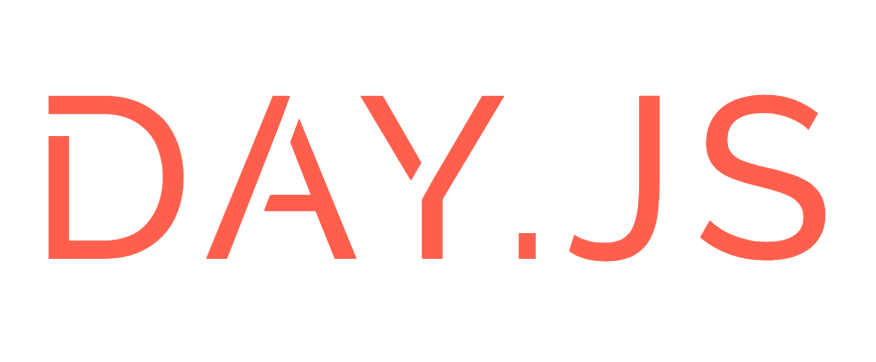
Fast 2kB alternative to Moment.js with the same modern API
5 |
52 |
60 |
66 |
74 |
79 |
87 |
 98 |
99 |
100 |
98 |
99 |
100 |  104 |
105 |
106 |
104 |
105 |
106 |  107 |
108 |
109 |
107 |
108 |
109 |  110 |
111 |
112 |
110 |
111 |
112 | ${token.content.plugin}
42 |
43 | ${translate("plugin|plugin")}
44 | )`
45 | }
46 | return `
47 | ${translate("This requires the|plugin")}
48 |
49 | ${token.content.plugin}
50 |
51 | ${translate("plugin to work|plugin")}
52 | `
53 | }
54 |
55 | const pluginNotice = ctx => {
56 | ctx.inline.ruler.push('pluginNotice', parse)
57 | ctx.renderer.rules['pluginNotice'] = render
58 | }
59 |
60 | module.exports = pluginNotice
61 |
--------------------------------------------------------------------------------
/website/sidebars.json:
--------------------------------------------------------------------------------
1 | {
2 | "docs": {
3 | "Installation": [
4 | "installation/installation",
5 | "installation/node-js",
6 | "installation/browser",
7 | "installation/typescript",
8 | "installation/download"
9 | ],
10 | "Parse": [
11 | "parse/parse",
12 | "parse/now",
13 | "parse/string",
14 | "parse/string-format",
15 | "parse/unix-timestamp-milliseconds",
16 | "parse/unix-timestamp",
17 | "parse/date",
18 | "parse/object",
19 | "parse/array",
20 | "parse/utc",
21 | "parse/dayjs-clone",
22 | "parse/is-valid"
23 | ],
24 | "Get + Set": [
25 | "get-set/get-set",
26 | "get-set/millisecond",
27 | "get-set/second",
28 | "get-set/minute",
29 | "get-set/hour",
30 | "get-set/date",
31 | "get-set/day",
32 | "get-set/weekday",
33 | "get-set/iso-weekday",
34 | "get-set/day-of-year",
35 | "get-set/week",
36 | "get-set/iso-week",
37 | "get-set/month",
38 | "get-set/quarter",
39 | "get-set/year",
40 | "get-set/week-year",
41 | "get-set/iso-week-year",
42 | "get-set/iso-weeks-in-year",
43 | "get-set/get",
44 | "get-set/set",
45 | "get-set/max",
46 | "get-set/min"
47 | ],
48 | "Manipulate": [
49 | "manipulate/manipulate",
50 | "manipulate/add",
51 | "manipulate/subtract",
52 | "manipulate/start-of",
53 | "manipulate/end-of",
54 | "manipulate/local",
55 | "manipulate/utc",
56 | "manipulate/utc-offset"
57 | ],
58 | "Display": [
59 | "display/display",
60 | "display/format",
61 | "display/from-now",
62 | "display/from",
63 | "display/to-now",
64 | "display/to",
65 | "display/calendar-time",
66 | "display/difference",
67 | "display/unix-timestamp-milliseconds",
68 | "display/unix-timestamp",
69 | "display/days-in-month",
70 | "display/as-javascript-date",
71 | "display/as-array",
72 | "display/as-json",
73 | "display/as-iso-string",
74 | "display/as-object",
75 | "display/as-string"
76 | ],
77 | "Query": [
78 | "query/query",
79 | "query/is-before",
80 | "query/is-same",
81 | "query/is-after",
82 | "query/is-same-or-before",
83 | "query/is-same-or-after",
84 | "query/is-between",
85 | "query/is-a-dayjs",
86 | "query/is-leap-year"
87 | ],
88 | "i18n": [
89 | "i18n/i18n",
90 | "i18n/loading-into-nodejs",
91 | "i18n/loading-into-browser",
92 | "i18n/changing-locale",
93 | "i18n/instance-locale",
94 | "i18n/getting-locale",
95 | "i18n/listing-months-weekdays",
96 | "i18n/locale-data"
97 | ],
98 | "Plugins": [
99 | "plugin/plugin",
100 | "plugin/loading-into-nodejs",
101 | "plugin/loading-into-browser",
102 | "plugin/advanced-format",
103 | "plugin/array-support",
104 | "plugin/bad-mutable",
105 | "plugin/bigint-support",
106 | "plugin/buddhist-era",
107 | "plugin/calendar",
108 | "plugin/custom-parse-format",
109 | "plugin/day-of-year",
110 | "plugin/dev-helper",
111 | "plugin/duration",
112 | "plugin/is-between",
113 | "plugin/is-leap-year",
114 | "plugin/is-same-or-after",
115 | "plugin/is-same-or-before",
116 | "plugin/is-today",
117 | "plugin/is-tomorrow",
118 | "plugin/is-yesterday",
119 | "plugin/iso-week",
120 | "plugin/iso-weeks-in-year",
121 | "plugin/locale-data",
122 | "plugin/localized-format",
123 | "plugin/min-max",
124 | "plugin/object-support",
125 | "plugin/plural-get-set",
126 | "plugin/preparse-postformat",
127 | "plugin/quarter-of-year",
128 | "plugin/relative-time",
129 | "plugin/timezone",
130 | "plugin/to-array",
131 | "plugin/to-object",
132 | "plugin/update-locale",
133 | "plugin/utc",
134 | "plugin/week-of-year",
135 | "plugin/week-year",
136 | "plugin/weekday"
137 | ],
138 | "Customize": [
139 | "customization/customization",
140 | "customization/month-names",
141 | "customization/month-abbreviations",
142 | "customization/weekday-names",
143 | "customization/weekday-abbreviations",
144 | "customization/weekday-min",
145 | "customization/relative-time",
146 | "customization/calendar"
147 | ],
148 | "Durations": [
149 | "durations/durations",
150 | "durations/creating",
151 | "durations/clone",
152 | "durations/humanize",
153 | "durations/format",
154 | "durations/milliseconds",
155 | "durations/seconds",
156 | "durations/minutes",
157 | "durations/hours",
158 | "durations/days",
159 | "durations/weeks",
160 | "durations/months",
161 | "durations/years",
162 | "durations/add",
163 | "durations/subtract",
164 | "durations/diffing",
165 | "durations/as",
166 | "durations/get",
167 | "durations/as-json",
168 | "durations/is-a-duration",
169 | "durations/as-iso-string",
170 | "durations/locale"
171 | ],
172 | "Time Zone": [
173 | "timezone/timezone",
174 | "timezone/parsing-in-zone",
175 | "timezone/converting-to-zone",
176 | "timezone/guessing-user-timezone",
177 | "timezone/set-default-timezone"
178 | ]
179 | },
180 | "docs-other": {
181 | "Other": []
182 | }
183 | }
184 |
--------------------------------------------------------------------------------
/website/siteConfig.js:
--------------------------------------------------------------------------------
1 | /**
2 | * Copyright (c) 2017-present, Facebook, Inc.
3 | *
4 | * This source code is licensed under the MIT license found in the
5 | * LICENSE file in the root directory of this source tree.
6 | */
7 |
8 | // See https://docusaurus.io/docs/site-config for all the possible
9 | // site configuration options.
10 |
11 | // List of projects/orgs using your project for the users page.
12 | const users = []
13 | const markdownPlugins = require('./plugin')
14 | const siteConfig = {
15 | markdownPlugins: [markdownPlugins],
16 | title: 'Day.js', // Title for your website.
17 | tagline: '2kB JavaScript date utility library',
18 | url: 'https://day.js.org', // Your website URL
19 | baseUrl: '/', // Base URL for your project */
20 | // For github.io type URLs, you would set the url and baseUrl like:
21 | // url: 'https://facebook.github.io',
22 | // baseUrl: '/test-site/',
23 |
24 | // Used for publishing and more
25 | projectName: 'website',
26 | organizationName: 'dayjs',
27 | // For top-level user or org sites, the organization is still the same.
28 | // e.g., for the https://JoelMarcey.github.io site, it would be set like...
29 | // organizationName: 'JoelMarcey'
30 |
31 | // For no header links in the top nav bar -> headerLinks: [],
32 | headerLinks: [
33 | { search: true },
34 | { doc: 'installation/installation', label: 'Docs' },
35 | // { blog: true, label: 'Blog' },
36 | { href: 'https://github.com/iamkun/dayjs/', label: 'GitHub' },
37 | { languages: true },
38 | ],
39 |
40 | translationRecruitingLink: 'https://crowdin.com/project/dayjs',
41 |
42 | // If you have users set above, you add it here:
43 | // users,
44 |
45 | /* path to images for header/footer */
46 | headerIcon: 'img/logo.png',
47 | footerIcon: 'img/logo.png',
48 | favicon: 'img/favicon.ico',
49 |
50 | /* Colors for website */
51 | colors: {
52 | primaryColor: '#fb6052',
53 | secondaryColor: '#eb6052',
54 | },
55 |
56 | /* Custom fonts for website */
57 | /*
58 | fonts: {
59 | myFont: [
60 | "Times New Roman",
61 | "Serif"
62 | ],
63 | myOtherFont: [
64 | "-apple-system",
65 | "system-ui"
66 | ]
67 | },
68 | */
69 |
70 | // This copyright info is used in /core/Footer.js and blog RSS/Atom feeds.
71 | copyright: `Copyright © ${new Date().getFullYear()} Day.js`,
72 |
73 | docsSideNavCollapsible: true,
74 |
75 | editUrl: 'https://github.com/dayjs/website/blob/master/docs/',
76 |
77 | scrollToTop: false,
78 |
79 | highlight: {
80 | // Highlight.js theme to use for syntax highlighting in code blocks.
81 | // theme: 'github'
82 | themeUrl: 'https://cdn.jsdelivr.net/npm/highlight.js@9.12.0/styles/default.min.css',
83 | },
84 |
85 | // Add custom scripts here that would be placed in